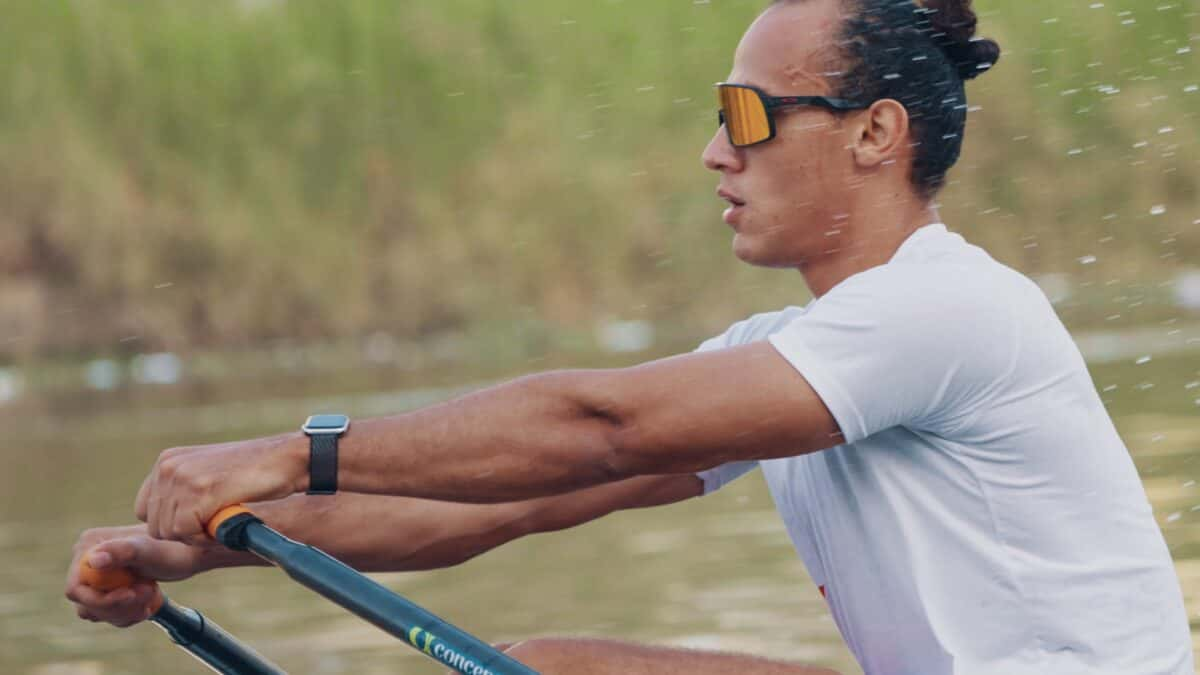
12 Mar 2025
Ali Hassan: Balancing Elite Rowing While Observing Ramadan
World Rowing recently spoke to Ali Hassan, an elite rower currently observing Ramadan, about how he balances his training and his faith.
Egyptian International Making Waves
Since we last spoke in November 2022, Egyptian international Ali Hassan has made great progress in the rowing world. Competing across multiple disciplines including coastal, indoor, and flatwater rowing, he recently secured gold at the African Championships in the men’s quad.
Observing Ramadan as an Athlete
Alongside to his demanding training schedule with the national team, Hassan observes Ramadan, the holiest month for Muslims, which includes fasting from dawn to sunset. Hassan says, “Ramadan is not just about fasting; it’s about discipline, giving back, and spending time with family and community. Fasting lasts around 14 hours daily, meaning no food or water during that period. Despite this, it’s amazing how the body adapts. The first week is the toughest, but after that, we establish a new rhythm.”
An Adapted Training Routine
For athletes accustomed to intense training, Ramadan requires careful adaptation to maintain performance while respecting the religious significance of the month. This includes changes in training, recovery and nutrition. Living in a Muslim-majority country means it is second nature for Hassan’s crew to seamlessly adjust their routines with well-rehearsed precision.
Hassan describes how they calibrate their routine: “We typically train one to two hours before sunset, at around 4 pm, focusing on technical work or steady-state sessions. This prevents excessive fatigue and dehydration during fasting hours. By 6 pm, training ends, and we break our fast with dates and water, followed by a balanced meal for recovery. Later, we have another training session, usually strength or high-intensity work such as using the ergo or weights, before a bigger meal.”
How Ramadan Impacts Diet and Sleep
The fasting routine makes proper nutrition, especially hydration, essential before dawn and after dusk. “Taking in minerals and electrolytes help replenish nutrients. We also aim for slow-digesting carbs, vegetables, and lean proteins. We stop eating around 4 am after our pre-dawn meal, Suhoor, then sleep in intervals before our late afternoon water session. During the day, the goal is to conserve energy wherever possible.” Hassan explains.
A major change is disrupted sleep. He says, “Late-night prayers and changing meal patterns can lead to sleep deprivation, which impacts recovery. Eating late at night can also cause bloating, which needs to be managed”.
When asked whether Ramadan causes weight loss, Hassan chuckles, saying “I typically lose 2 to 3 kg but its amazingly common how many people actually gain weight during this period, due to all the delicious sweets we often consume during this time!”.
Ramadan Teaches Discipline and Mental Resilience
Despite the challenges, Hassan believes fasting helps both body and mind, saying, “Ramadan teaches discipline, patience, and resilience, qualities that define a strong rower. We come out of Ramadan feeling refreshed and cleansed, and many of us actually perform well in post-Ramadan ergo tests,”.
Role Models and Community Support
Hassan looks up to several elite athletes who have successfully balanced high-level competition with their faith, including Premier League footballer Mohamed Salah and NBA player Kyrie Irving. His eyes light up as he speaks about British Olympic gold medallist Mohamed Sbihi. “Moe is a legend. He recorded a sub-5:40 erg score post Ramadan.”
He is also grateful for Egypt’s supportive environment, where both coaches and athletes adapt accordingly. He encourages rowing communities worldwide to adopt a similar approach. “A little understanding goes a long way. Adjusting training schedules and being mindful of hydration needs can make a big difference for fasting athletes.” Hassan says.
Big decisions ahead of LA 2028
Hassan has his sights set on the 2028 Los Angeles Olympics. “Training is going really well. I’m improving mentally and physically. Having a great head coach in Mahmoud Dawood makes a big difference.” he says.
However, his versatility across different rowing disciplines presents itself with a dilemma, with the introduction of Beach Sprints for the next Olympics. Hassan says, “I love rowing and have been doing it for over 18 years. Each aspect of the sport has its own charm. The training structure and coaching approach differ between disciplines. I love the action of beach sprints, but I have a deep connection with classic rowing for years. This year, I need to decide which discipline to fully commit to”
Hassan’s story serves as a reminder how faith, discipline, and elite sport can be a powerful driver for success. World Rowing is excited to see which path he takes going forward.

